Governor, FCC Commissioner commend UMMC, partners on telehealth
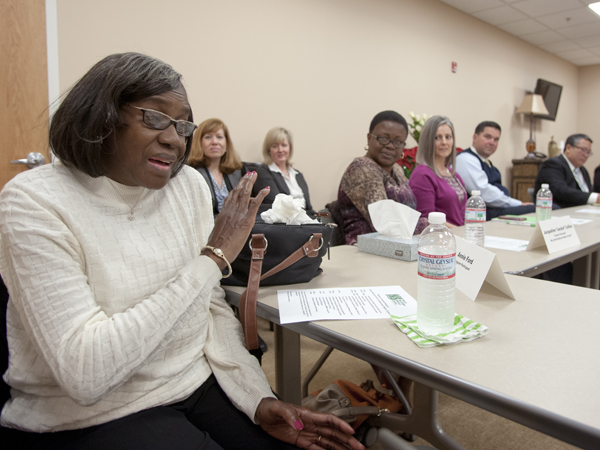
Published in News Stories on December 04, 2014
For Mississippi Delta resident Annie Ford, living with diabetes today is different than it was a few months ago.
The recent enrollee in the Diabetes Telehealth Network said she’s learned more about the disease over the last few weeks than she’s known over the last 15 years living with it.
“A diabetic can never learn too much,” said Ford. “And I’m trying to learn all I can so I can take care of me.”
State and federal officials gathered in the Mississippi Delta on Wednesday to tout the success of the telehealth system that's changing the quality of life for diabetes patients in one of the nation's poorest regions.
Gov. Phil Bryant and Commissioner Mignon Clyburn with the Federal Communications Commission traveled to North Sunflower Medical Center to discuss the progress of the program, a partnership between the University of Mississippi Medical Center, the Governor's Office, NSMC, GE Healthcare, Intel-GE Care Innovations and C Spire.
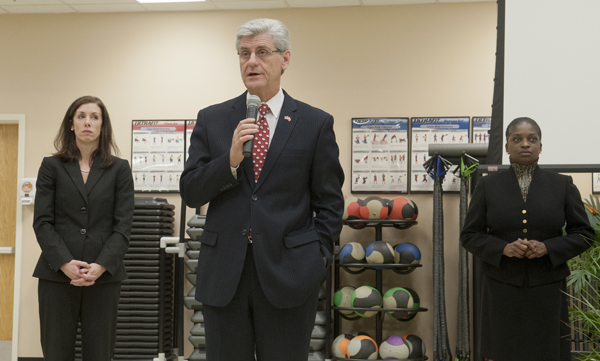
(from left) Henderson, Bryant and Mignon
The network, which is designed to improve patients' health and reduce the total cost of care, connects diabetic patients in the Delta with UMMC specialists via a remote connection. The first of its kind in the nation, the Diabetes Telehealth Network provides tablets to the patients to help health-care providers remotely manage the chronic conditions that come with the disease.
With their tablets, patients share what’s going on with them physically, emotionally and psychologically through daily health sessions with their clinicians. In addition, the tablets automatically capture their health data, such as weight, blood pressure and glucose levels, and transmit that daily to clinicians.
Bryant said diabetes affected his parents and brother, adding he understands the disease carries physical and emotional costs on families along with financial burdens. The program already is alleviating such costs.
“It is very encouraging to see positive results early in the program and hear the personal stories from patients and nurses who believe this program has the ability to create lasting change for individuals and the state of Mississippi,” Bryant said. “This innovative partnership has gained the attention of the Federal Communications Commission as we are connecting patients in the rural town of Ruleville to a care management program they otherwise would not have access to in their town.”
Bryant also thanked Clyburn for focusing on the steps Mississippi has taken to provide quality health-care access to all its citizens, including those in the governor's home county.
“Connecting people to the health and care services they need is the true promise of broadband,” said Clyburn. “I applaud the state of Mississippi and its private partners for making this project a priority.”
Both leaders tipped their proverbial hats to the work UMMC's own Dr. Kristi Henderson has achieved with telehealth in the state.
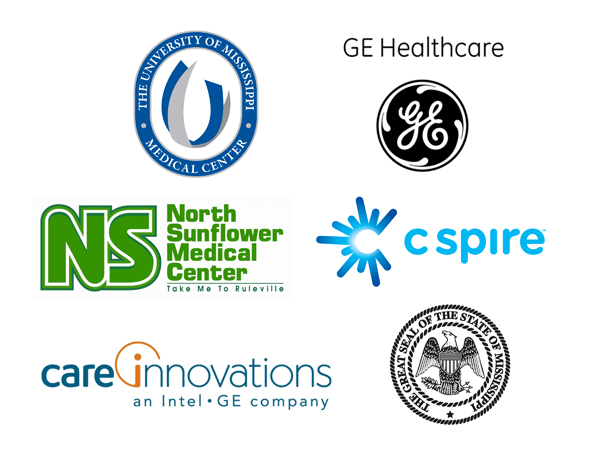
Network partners: UMMC, GE Healthcare, North Sunflower Medical Center, C Spire, Intel-GE Care Innovations and the State of Mississippi
“Just 4 months into the program, we’re already hearing such great patient feedback about how the Diabetes Telehealth Network is empowering patients to take better control of their diabetes from their home, yet still have the guidance and oversight of clinicians,” said Henderson, UMMC’s chief telehealth and innovation officer. “This program is helping improve care coordination and strengthen connections between clinicians and patients beyond the walls of a hospital in a way that I think will reduce the use of higher acuity clinical settings, like the ER.”
In 2010, 12.1 percent of adults in the Mississippi Delta, which is among the more underserved and impoverished regions in the nation, reported being diagnosed with type 2 diabetes. Of that group, 293 died from complications related to the disease. In 2012, diabetic medical expenses in Mississippi totaled $2.74 billion, according to the American Diabetes Association.
An estimated 370,000 adults in Mississippi are living with diabetes, part of the more than 29 million adult Americans who suffer from the disease.
Photos
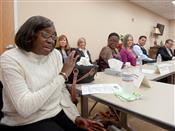 | High Resolution Medium Resolution Low Resolution |
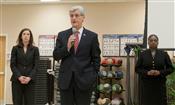 | Training Program HBCU PRIDE is a two-year training program that consists of four phases. Phase I - Summer Session I Right The initial phase of HBCU PRIDE is an intensive 10-day face-to-face program composed of “advanced and refresher mini courses” in obesity research, data collection, High Resolution Medium Resolution Low Resolution |
 | High Resolution Medium Resolution Low Resolution |


